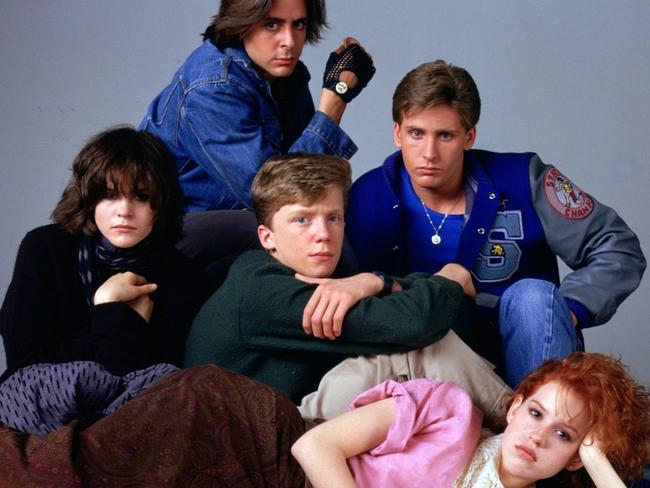Introverts versus extroverts: How to get along at work
EVERY workplace is a microcosm of different personality types trying to coexist in one space. So how can we all get along?

NO ONE is a pure introvert or extrovert.
However, every workplace has representatives of each personality type, and there are a few fundamental differences between the two that affect how they interact with their colleagues. Introverts tend to keep to themselves, preferring one-on-one conversations and solo work. Extroverts enjoy group projects, talking through their thoughts and connecting with others throughout the day. These behaviours often lead to unfair assumptions and judgments about both groups, which may cause tension within the team.
“Typically, extroverts see introverts as unsocial, inadequate, shy, secretive and aloof non-contributors,” said Jim Lew, a diversity trainer and organisational development expert. “Introverts describe extroverts as aggressive, egotistical, unaware, rude and socially needy. While there may be a kernel of truth to these generalisation, the tone is angry and accusatory, rather than appreciative.”
Organisational psychologists and career experts shared some tips for employees and their bosses to help introverts and extroverts succeed in the workplace.
HOW TO WORK WITH AN INTROVERT
“Pause and take a breath before switching subjects. Play to the introvert’s preference for preparation by giving them meeting agendas ahead of time.” – Jennifer Kahnweiler, author of Quiet Influence: The Introvert’s Guide to Making a Difference.

“When discussing projects [with] introverts, you are not going to get lots of verbal feedback. That doesn’t mean they aren’t listening or that they have nothing to say.
An introvert prefers to take some time to process information and respond in a way that’s most comfortable for them, such as via a well-written email. You’ll get the most out of an introverted employee by giving them clear expectations and a lot of space. As long as goals and deadlines are understood, there’s no need to hover over their shoulders and micromanage.” – Tim Backes, career adviser at Resume Genius.
“Introverts are more reserved, making them more difficult to get to know. [This] doesn’t mean they do not like people or are not friendly. They typically prefer a few good friends over many acquaintances. In addition, extroverts need to understand that introverts have incredibly valuable input, but they need to be given airtime as they typically will not demand it.” –Lisa Tesvich, organisational psychologist and consultant
HOW TO WORK WITH AN EXTROVERT
“Introverts need to know that their extroverted colleagues have an essential need to speak, and that they have important things to say. However, [introverts] must respect themselves and the contributions they can inevitably add to the decision-making process. They must learn to assert themselves, breaking out of their ‘quiet’ posture to speak up about the insights that have been percolating in their brains while the extroverts have been speaking.” – Marc Miller, president of MLM Coaching and Consulting
“With an extrovert, you may want to test what you hear them say by asking questions. Introverts can believe that since the extrovert spoke that it might be a well-honed thought, which may not be true at all. An extrovert tends to think out loud by talking [and] gains energy both by talking as well as by [interacting] with others. This means that some of what you hear come from them may be all part of working through their thinking.” – Dorothy Tannahill-Moran, founder of The Introvert Whisperer blog

“Plan to give the extroverts some face time, since they need to talk out their ideas and bounce things off [others]. Also, put extroverts in roles where they can connect with people.” – Jennifer Kahnweiler
HOW TO MANAGE A TEAM WITH DIFFERENT PERSONALITY TYPES
“The manager needs to recognise each team member’s personality type and delegate tasks in such a way as to highlight employees’ strengths and mitigate their weaknesses. You don’t want to ask a talented-yet-scatterbrained extrovert to take lead on a project that requires an extreme attention to details.” – Tim Backes
“An employer would do well to actively facilitate conversations from introverts and limit extroverts’ talking so they don’t dominate any group action. Extroverts can easily annoy an introvert by noise and too much talk, although you may never outwardly know when that has taken place.” – Dorothy Tannahill-Moran
“We can’t say that every introvert is a bookworm or every extrovert wears lampshades at parties any more than we can say that every woman is a natural consensus-builder and every man loves contact sports,” Cain wrote.
No matter which side you tend toward, try to be considerate and understanding of others’ viewpoints and natural behaviours when you’re put in a group with other personality types.
“Sometimes as an employee or manager, you have to work with someone who has a completely opposite personality than your own,” Backes said. “As long as you properly acknowledge your personality type relative to your colleague’s, you should be able to find a happy medium.”
This is an edited version of an article originally published on BusinessNewsDaily, and was reproduced here with permission.



